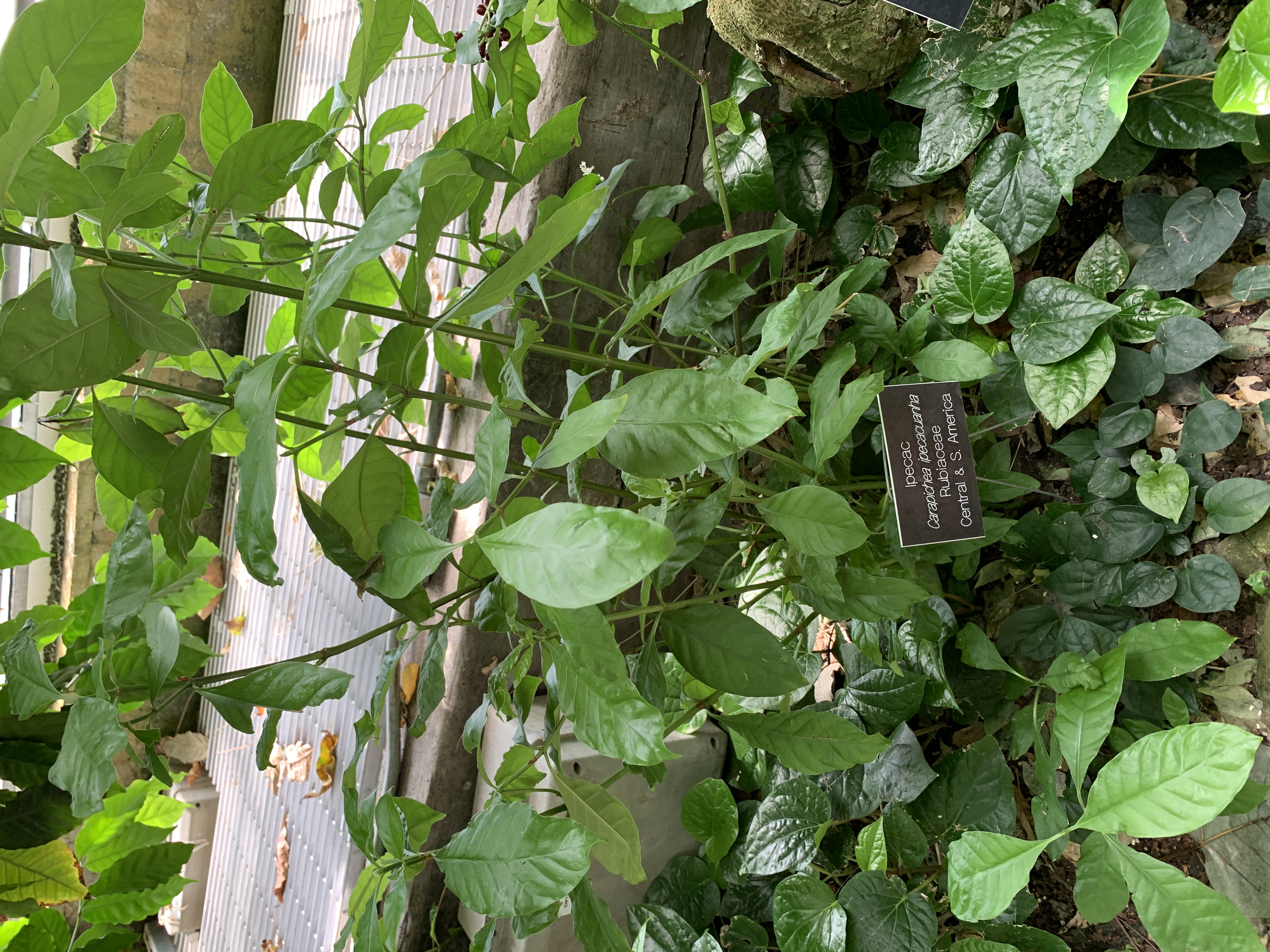Psychotria ipecacuanha on:
[Wikipedia]
[Google]
[Amazon]
 ''Carapichea ipecacuanha'' is a species of flowering plant in the family Rubiaceae. It is native to Costa Rica, Nicaragua, Panama, Colombia, and Brazil. Its common name, ipecacuanha (), is derived from the
''Carapichea ipecacuanha'' is a species of flowering plant in the family Rubiaceae. It is native to Costa Rica, Nicaragua, Panama, Colombia, and Brazil. Its common name, ipecacuanha (), is derived from the
 ''Carapichea ipecacuanha'' is a species of flowering plant in the family Rubiaceae. It is native to Costa Rica, Nicaragua, Panama, Colombia, and Brazil. Its common name, ipecacuanha (), is derived from the
''Carapichea ipecacuanha'' is a species of flowering plant in the family Rubiaceae. It is native to Costa Rica, Nicaragua, Panama, Colombia, and Brazil. Its common name, ipecacuanha (), is derived from the Tupi Tupi may refer to:
* Tupi people of Brazil
* Tupi or Tupian languages, spoken in South America
** Tupi language, an extinct Tupian language spoken by the Tupi people
* Tupi oil field off the coast of Brazil
* Tupi Paulista, a Brazilian municipalit ...
''ipega'kwãi'', or "road-side sick-making plant". The plant has been discussed under a variety of synonyms
A synonym is a word, morpheme, or phrase that means exactly or nearly the same as another word, morpheme, or phrase in a given language. For example, in the English language, the words ''begin'', ''start'', ''commence'', and ''initiate'' are all ...
over the years by various botanists. The roots were used to make syrup of ipecac, a powerful emetic, a longtime over-the-counter medicine no longer approved for medical use in the West for lack of evidence of safety and efficacy. An example of emetic compound from the roots is emetine.
Description
Ipecacuanha is a slow-growing plant, which reduces its commercial appeal as a crop plant. It is seldom cultivated in South America but it has been cultivated in India and elsewhere. The root of ipecacuanha has been used in preparation of the medicament, the syrup, is simple or divided into a few branches, flexuous, and composed of rings of various size. It is somewhat fleshy when fresh, and appearing as if closely strung on a central woody cord. The different kinds known in commerce (gray, red, brown) are all produced by the same plant, the differences arising from the age of the plant, the mode of drying, etc. Various other plants can be used as substitutes for it.History
Ipecacuanha was known to Europe by the mid 17th century. Nicholas Culpeper, an English botanist, herbalist, and physician, compared Ipecacuanha to the herb Orach in his book, ''Complete Herbal & English Physician'', published in 1653. One of the first recorded shipments of Ipecacuanha to Europe was in 1672, by a traveler named Legros, who imported a quantity of the root to Paris from South America. In 1680, a Parisian merchant named Garnier possessed some 68 kilograms (150 pounds) of the substance and informed the physicianJean Claude Adrien Helvetius
Jean may refer to:
People
* Jean (female given name)
* Jean (male given name)
* Jean (surname)
Fictional characters
* Jean Grey, a Marvel Comics character
* Jean Valjean, fictional character in novel ''Les Misérables'' and its adaptations
* J ...
(1685–1755) of its power in the treatment of dysentery. Helvetius was granted sole right to vend the remedy by Louis XIV, but sold the secret to the French government
The Government of France ( French: ''Gouvernement français''), officially the Government of the French Republic (''Gouvernement de la République française'' ), exercises executive power in France. It is composed of the Prime Minister, who ...
, who made the formula public in 1688.
Ipecacuanha has a long history of use as an emetic, for emptying the stomach in cases of poison
Poison is a chemical substance that has a detrimental effect to life. The term is used in a wide range of scientific fields and industries, where it is often specifically defined. It may also be applied colloquially or figuratively, with a broa ...
ing, a use that has been discontinued in medical settings (see syrup of ipecac). It has also been used as a nauseant
Vomiting (also known as emesis and throwing up) is the involuntary, forceful expulsion of the contents of one's stomach through the mouth and sometimes the nose.
Vomiting can be the result of ailments like food poisoning, gastroenteri ...
, expectorant, and diaphoretic
Perspiration, also known as sweating, is the production of fluids secreted by the sweat glands in the skin of mammals.
Two types of sweat glands can be found in humans: eccrine glands and apocrine glands. The eccrine sweat glands are distri ...
, and was prescribed for conditions such as bronchitis. The most common and familiar preparation is syrup of ipecac, which was commonly recommended as an emergency treatment for accidental poisoning until the final years of the 20th century. Ipecacuanha was also traditionally used to induce sweating. A common preparation for this purpose was Dover's powder.
In the 19th century, women prisoners at the Cascades Female Factory, Tasmania, were routinely given "a grain or so of ipecacuanha" as a precaution, especially "upon ladies with gross health and fiery temperaments."
Chemical constituents
Ipecacuanha contains the alkaloids emetine (methylcephaeline) and cephaeline. It also contains the pseudo- tannin ipecacuanhic acid or cephaëlic acid.References
External links
* therapeutic classification * * {{Taxonbar, from=Q756292 Palicoureeae Flora of Costa Rica Flora of Nicaragua Flora of Panama Flora of Colombia Flora of Brazil Medicinal plants of South America